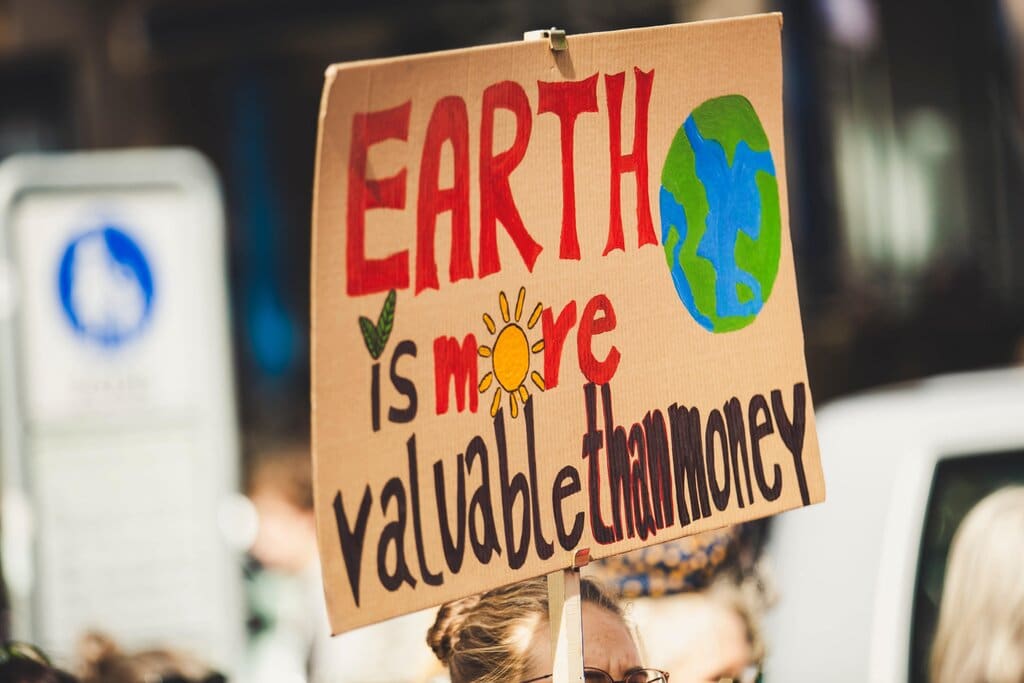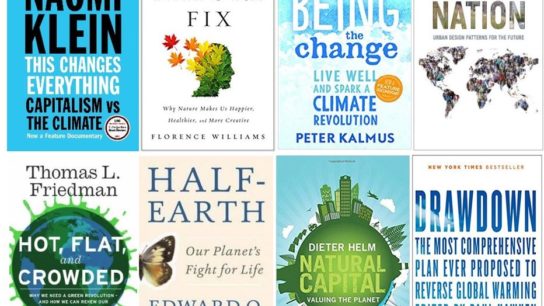Large corporations and companies are some of the biggest polluters and contributors to environmental problems across the globe. Here’s how to avoid harmful corporate actors and falling for greenwashing traps: by practicing self-sustainability.
—
It’s no big surprise that major corporations and businesses are huge contributors to global pollution problems. Many of them don’t even try to hide it and have gotten away with it for years. In 2017, one study found that just 100 companies were responsible for 71% of global emissions.
If you’re trying to do your part to live a more sustainable lifestyle and do something good for the planet, abstaining from major corporations is a great way to start. Learning to live without certain things might sound difficult, at first. But, a self-sustainable lifestyle is easier than you might think.
It starts with being an informed consumer. With just a little bit of research, you’ll quickly find which brands and companies are causing the most damage – including those that may be lying to you.
Once you understand just how much damage is being done to the environment, you’ll have an easier time taking active steps toward self-sustainability.
Not sure how to get started? Let’s talk more about self-sustainability, how you can hold corporations responsible, and what you can do to give back to the planet by avoiding their practices.
What Is Self-Sustainability?
Sustainability has become a bit of a buzzword in recent years. More people are starting to take note of the dire state of the planet. Everything from climate change to water pollution has become a hot topic. It’s leading people to make big changes in their lives, and there is still hope that the effects of emissions can be turned around.
On a small scale, you can practice sustainability each day by doing things like:
- Going zero-waste
- Using energy-efficient appliances
- Recycling
- Using less water
Self-sustainability goes one step further. Living a self-sustainable lifestyle involves core areas like:
- Growing your own food
- Producing energy
- Improving your mental and physical health
- Being financially responsible
It can also involve things like bike riding and walking instead of taking a car or making your own clothes. Does it require a lot of dedication? Yes. When you consider how much damage major corporations are causing though, it might be an easier decision than you realise to live a self-sustainable life.
You might also like: 12 Major Companies Responsible for Deforestation
Don’t Believe the Lies
If you have any interest in the environment (which, you likely do if you’re reading this), you might think you’re already “good” based on the products you buy and the companies you support. Some major corporations indeed go the extra mile to protect the environment and be more sustainable. Some of the most sustainable companies around the globe are:
- Schneider Electric (France)
- Orsted A/S (Denmark)
- Banco de Brasil (Brazil)
- Neste Oyj (Finland)
- Stantec, Inc. (Canada)
- McCormick & Company, Inc. (United States)
These companies, and others, have made commitments to sustainable practices. Some use renewable resources. Others focus on a cleaner supply chain while implementing more environmentally-friendly practices into their daily operations.
But, not every business that claims to be eco-friendly lives up to the expectations. When that happens, it’s called “greenwashing,” and it’s becoming a big problem.
Greenwashing is nothing more than a marketing spin by companies to make their brand and/or products seem more environmentally friendly. Some common terms/words you’ll see with greenwashing include:
- All-natural
- Eco-friendly
- Non-toxic
- Earth-friendly
Some companies have gotten very good at marketing themselves in a “greener” light, when they’re bending the truth, at best. You can fight back against greenwashing and the companies that use this practice by doing your research. The products you’re using right now might not be as sustainable as you might think. Make sure you understand what certain marketing words and phrases mean, and how different brands tend to use them.
How You Can Fight Back
If you want to abstain from harmful corporations, being more self-sustainable is the way to go. You might however, not feel immediately comfortable with growing your own food or trying to produce your own energy. So, you might not be able to go “cold turkey” when it comes to avoiding major corporations. But, while you’re learning how to be more self-sustainable, you can hold companies accountable for the environmental damage they’re causing by familiarising yourself with environmental remediation.
Environmental remediation is the removal of environmental contaminants from the environment. It’s actually a law that companies that have done damage to the environment with their practices “clean up” or rectify the situation. The process typically includes:
- A site assessment to determine the level of contamination
- Determining remediation methods
- Selecting secure safety measures to protect the community and clean-up crew
- Utilising environmental remediation specialists to clean up the area
- Re-examining and re-evaluating the area once remediation is complete
It’s a matter of doing as much research as possible on companies that either claim to be doing something good, or companies that are obviously getting away with practices that are harmful to the environment. It only takes one person to inform others about these problems, until the right people are reached for environmental remediation.
Hold these companies accountable. You can do your part to lessen the prevalence of greenwashing and make sure companies that harm the planet are responsible for “fixing” their messes.
As you do, you’ll be learning more about a self-sustainable lifestyle. You’ll learn how to work your land, produce more energy; maybe you’ll even be able to sew your own clothes and eliminate your family’s textile waste. Eventually, you can take pride in knowing you don’t need major corporations to live a happy, healthy life that gives back to the planet, rather than causing harm to it.
Featured image by: Unsplash


















